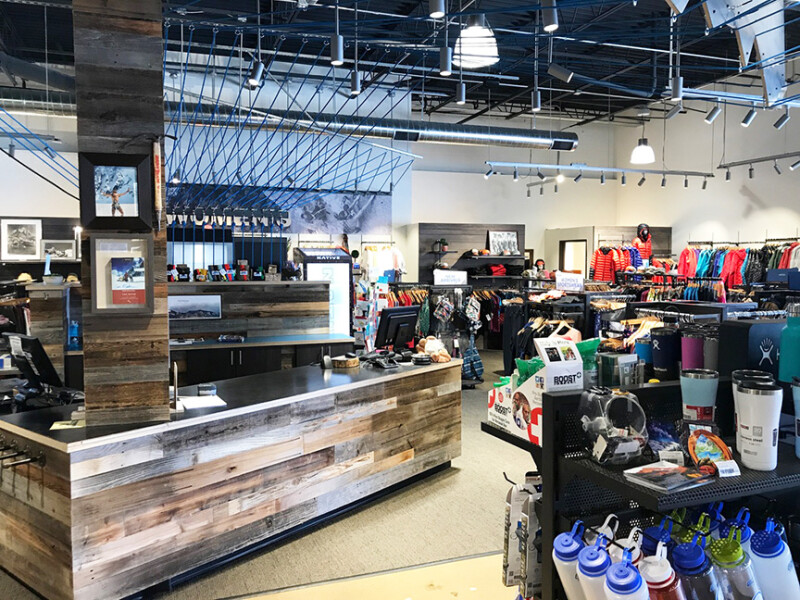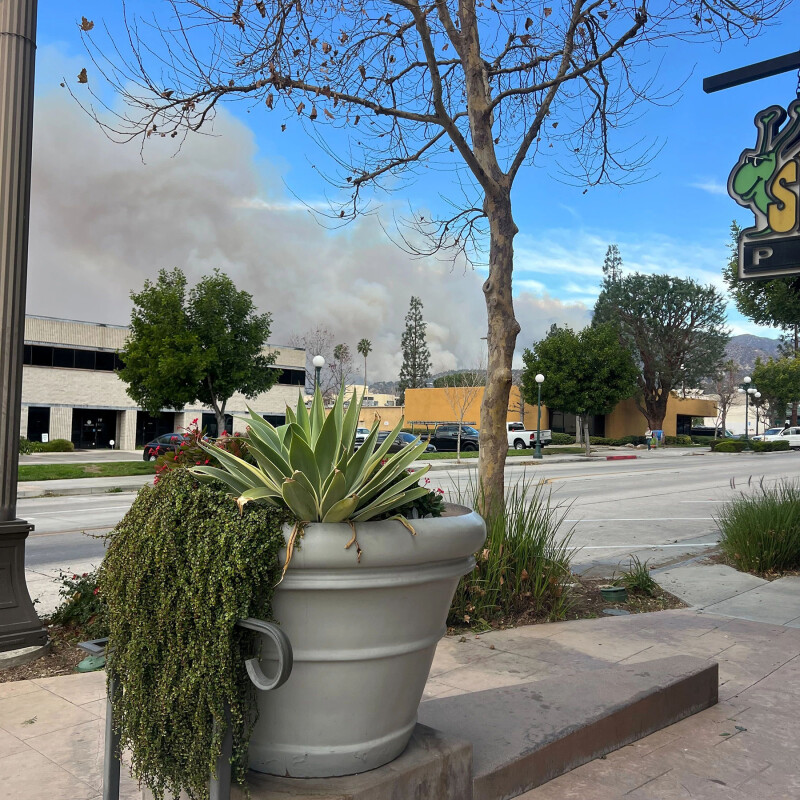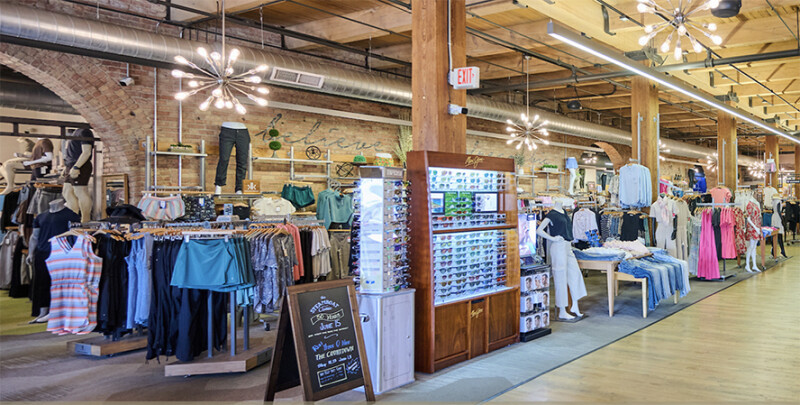Leading the charge into sustainability within the run specialty business is the Low Impact Alliance (LIA), an ambitious alliance among all stakeholders in the running industry ranging from consumers to retailers to brands. The alliance aims to work towards changing the way the industry as a whole perceives sustainability, which would allow for better and more open communication surrounding why this paradigm shift is necessary if future generations are to be able to participate in the sport. Its members realize that a unified voice of the entities that make up run specialty and those who interact with it most is much louder than a singular person, group or business and has a better chance at bringing about measurable change from the top.
To gain a better understanding of LIA’s activities, motives and goals Running Insight reached out to Alexander Sessa, a key member who works for Salomon as the Denver Epicenter Leader focusing on soft goods such as footwear, apparel and hydration. Sessa started working with the LIA while he was a marketing coordinator at Fleet Feet Decatur and Peachtree City, where his retail experience manager, Brandy Madson, recognized his passion for sustainability – he has a Master’s in Earth and Atmospheric Sciences from Georgia Tech – and encouraged him to attend weekly meetings to learn how the two stores could do better with respect to recycling and participating in brand-led sustainability initiatives.
Here Sessa talks about LIA’s mission, how they plan to fulfill it and how others can get more involved.
The Evolving LIA Mission … The mission has remained relatively unchanged since LIA’s inception — to promote transparency and environmental responsibility within the running industry by educating, advocating and inspiring action. However, Sessa adds, “the ways in which we’re attempting to accomplish this mission are constantly evolving with program development and implementation being the principal focus at the moment.”
Why Retailers Should Get Involved … Because an alliance of retailers can have a larger impact on how run specialty doors interact with brands when it comes to advocating for more environmentally-friendly transportation, packaging and production methods.
The Profit Reason … “Ah, the return on investment question, or, maybe not?,” Sessa says, pointing out that he thought about this a lot during his time at Fleet Feet because ultimately as someone who is coordinating events at a store level he had to take into account how different events and collaborations would impact the business. Hopefully, these decisions will bring business to the store, but also align with an environmentally conscious train of thought.
Real-Life Examples … Consider that a customer finds out that your store offers brand-led recycling solutions leading to a more circular economy, such as the Performance Nutrition Recycling program by GU Energy Labs and TerraCycle, the Second Cut Project by Smartwool, and/or the Closed Loop program by Recover Brands, and decides to bring their spent nutrition or used apparel to the store to recycle them. What are they most likely to do? “From my experience and if you subscribe to the Theory of Planned Behavior, they’ll most likely stock up on nutrition and buy more apparel once they are actually in store and quantify what they’ve just recycled,” Sessa explains. “And, if the store carries products from the brands who are facilitating these recycling programs, it follows that the consumer will have an improved perception of these brands sans other external factors, which in turn encourages brands to offer in-store sustainability initiatives.”
How To Get Involved … Sessa recommends joining the LIA newsletter via its website – lowimpactalliance.com – to keep up to date with industry spotlights and news, quarterly roundtables and developments in its ever-evolving programming. And, time permitting, he strongly suggests watching all of LIA’s previously recorded webinars on YouTube because they each corresponded to past LIA roundtable discussions that have dealt with important questions encountered by run specialty retailers daily.
Grading the Brands … Sessa goes with the first thing that pops into his head and gives the industry a solid “C” (i.e., just average). “There are so many opportunities out there that have been barely explored – and implemented – by running brands in the move towards a more sustainable industry, from biodegradable plant-based fabrics and bio-based materials to water-saving dyeing technology to fully recyclable shoes that I believe there is much more work that needs to be done in order to make the concept of sustainability commonplace within the industry.”
Who Drives The Effort ... Race directors and organizations as well as retailers need to be the ones really driving and amplifying the discussion around sustainability. “If the interest in more sustainable practices isn’t conveyed to the brands, there will ultimately be a disconnect between the consumers and brands. As the LIA I believe this is something we can help facilitate.”
A Message to Vendors … Without mentioning any specific brands, Sessa finds it incredibly useful when a brand makes their sustainability story or stories easy to find on their website, typically in their main drop-down menu, and makes sure that content is easily digestible to their customers.
A Good First Step … Just being a part of the broader sustainability conversation is the most important first step because the more information a retailer can be exposed to, the more likely that retailer will take some kind of action in response to what they’ve learned.
Personal Note: Why LIA … With a background in Earth and Atmospheric Sciences, Sessa was pursuing a PhD in Planetary Science and Astrobiology before transitioning to the outdoor/running industry. He rediscovered hiking/running during his time in grad school and this led to him to seek out a way to connect his passion for being surrounded by the natural environment with his educational background. The LIA was attractive because he believes it has the potential to be the bridge between the two. “There is so much data out there that can be gathered, analyzed and presented to consumers, retailers and brands that could potentially change the way the running industry views its relationship with our planet,” he says. “However, I think there needs to be a driving force that really helps move the entire process along.”
Success Stories … During Sessa’s time at Fleet Feet Decatur and Peachtree City he implemented several sustainability initiatives that are still in effect today — installing recycling bins at every fit bench at both stores to help remind employees that some of the materials associated with footwear, apparel and accessories are recyclable and as a talking point for interactions with customers; the donation of unsellable footwear to the Atlanta chapter of Back on My Feet; and collecting insole trimmings from both stores to donate to Scraplanta Creative Reuse, an Atlanta-based nonprofit on a mission to empower artists, makers, teachers and students to create beautiful works of art from discarded materials.
Next For LIA … There are a number of LIA initiatives and events planned for the remainder of 2023:
• The LIA will have a presence at Runchella and is planning on hosting a plogging event in partnership with a brand and local environmental stewardship/running organizations.
• It is rolling out its National Plogging Initiative this month with the goal of getting as many run specialty retailers as possible to host a plogging or other environmental cleanup event in their local communities during Earth Month.
• It will also be releasing the LIA plogging guide as well as announcing access to a free LIA plogging kit to any interested retailers. The guide will provide insight into everything a retailer needs to know and consider when hosting a plog or similar event and the kit includes gloves, bags and a scale to weigh the trash collected at their event.
• The LIA is working with the University of Minnesota School of Public Health to conduct a pilot study with run specialty retailers in the Twin Cities metropolitan area to shape a proposed program that would work with run specialty doors nationwide to conduct greenhouse gas inventories with the goal of establishing a run specialty greenhouse gas emission baseline, future benchmarks and industry certification threshold.






